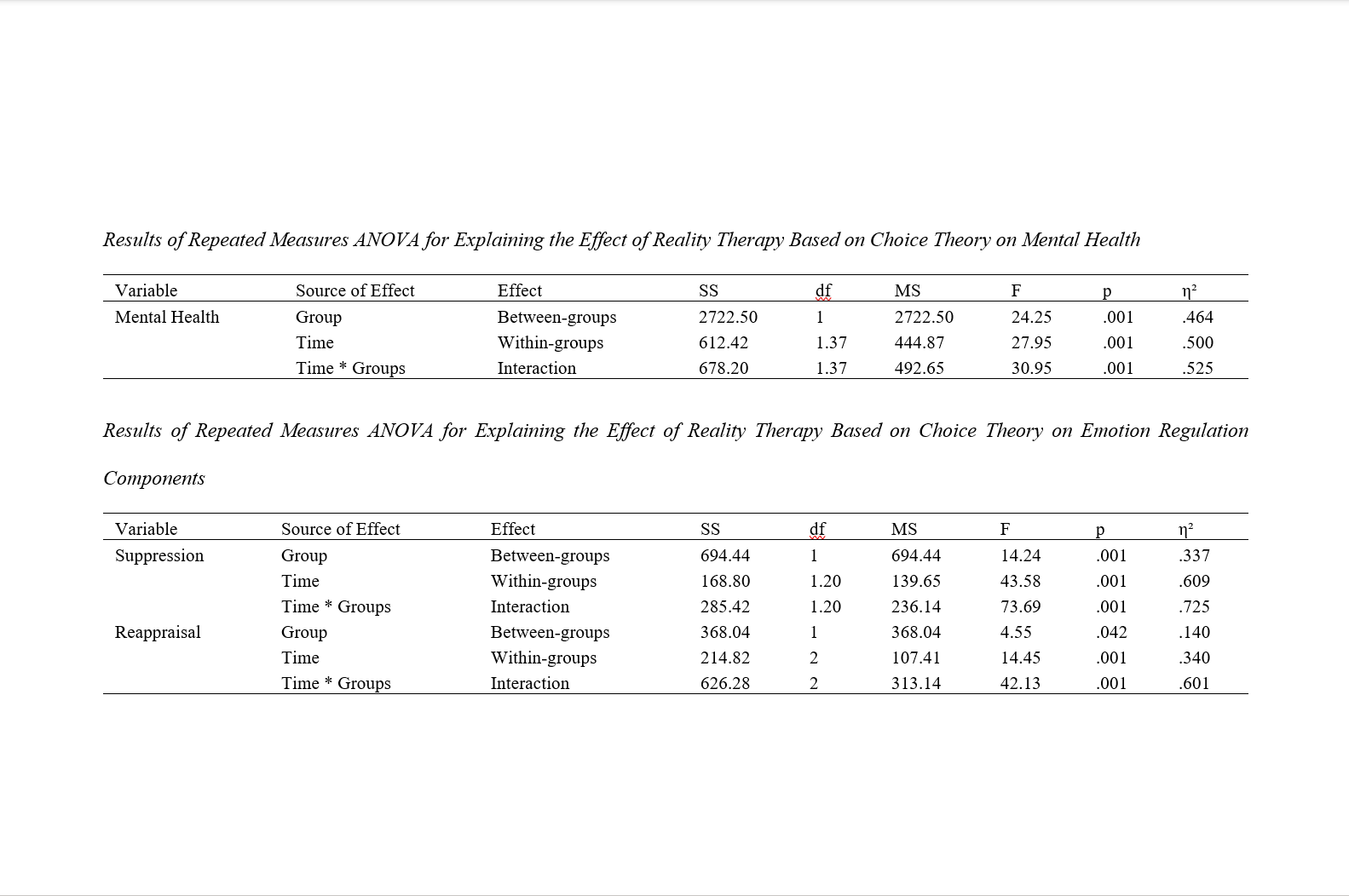The Effectiveness of Reality Therapy Training Based on Choice Theory on Mental Health and Emotion Regulation in Female Middle School Students
Keywords:
Emotion Regulation, Mental Health, Adolescents, Reality TherapyAbstract
Objective: The present study aimed to determine the effectiveness of Reality Therapy training based on Choice Theory on mental health and emotion regulation in female middle school students.
Methods and Materials: The research method was quasi-experimental with a pre-test, post-test, follow-up, and control group design. The statistical population of the present study included all female middle school students in District 11 of Tehran during the 2021-2022 academic year, from which 30 individuals were selected through purposive sampling and randomly assigned to two groups: intervention and control. Participants completed the Goldberg General Health Questionnaire (1978) and the Gross and John Emotion Regulation Questionnaire (2003) for pre-test, post-test, and follow-up assessments. In this study, Reality Therapy training based on Choice Theory was conducted in 12 sessions, each lasting 90 minutes. Repeated measures ANOVA was used for data analysis.
Findings: The results indicated that Reality Therapy based on Choice Theory in the intervention group significantly reduced mental health problems compared to the control group (P = 0.001). Additionally, Reality Therapy based on Choice Theory in the intervention group led to a decrease in suppression and an increase in reappraisal compared to the control group (P = 0.001).
Conclusion: The findings of the present study demonstrated that Reality Therapy training based on Choice Theory improved mental health and emotion regulation in female middle school students. Based on these results, it is recommended to conduct Reality Therapy training sessions based on Choice Theory for adolescent girls in schools.
Downloads

Downloads
Additional Files
Published
Submitted
Revised
Accepted
Issue
Section
License
Copyright (c) 2024 Ahdyeh Omidi (Author); Marjan Hosseinzadeh Taghvaie (Corresponding Author); Farahnaz Meschi, Sheida Sodagar, Thahereh Ranjbari pour (Author)

This work is licensed under a Creative Commons Attribution-NonCommercial 4.0 International License.








